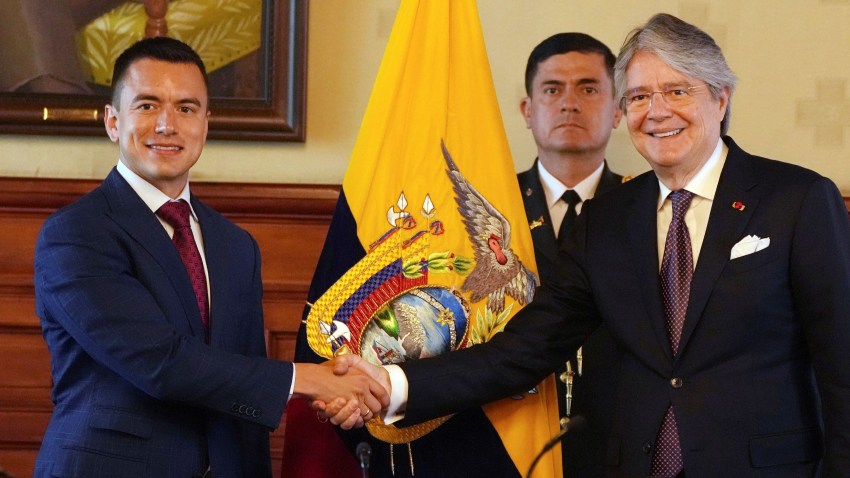On Oct. 15th, Daniel Noboa won the race to be Ecuador’s next president, defeating Luisa Gonzalez by 4 percentage points in the country’s second-round presidential runoff election. Noboa, a 35-year-old business executive, will get a shortened 18-month presidential term due to the circumstances of his election. In order to avoid a congressional impeachment procedure earlier this year, outgoing President Guillermo Lasso invoked the muerte cruzada, or mutual death, clause in the country’s constitution, which forced new presidential and legislative elections. Noboa and the other winners, however, will serve only the rest of their respective offices’ current terms, scheduled to end in mid-2025.
At that time, Noboa will have the option to run for reelection. For him to complete Lasso’s term and potentially win a full term in office for himself, he needs to learn from Lasso’s successes and failures.
Lasso took office in mid-2021 at one of the worst moments of the COVID-19 pandemic for Ecuador and the region, but he seized the opportunity and earned plaudits for how he handled the crisis. Lasso delivered on his promises to use his professional connections to secure COVID-19 vaccines for the country and his knowledge of business processes to distribute those vaccines efficiently. Within months of his inauguration, Ecuador went from having nearly nobody vaccinated to having one of the highest vaccination rates in the hemisphere. A country that infamously faced overflowing morgues early in the pandemic was able to start reopening its economy and society. Lasso reaped the political benefits, scoring approval ratings above 70 percent in several polls at the time.

